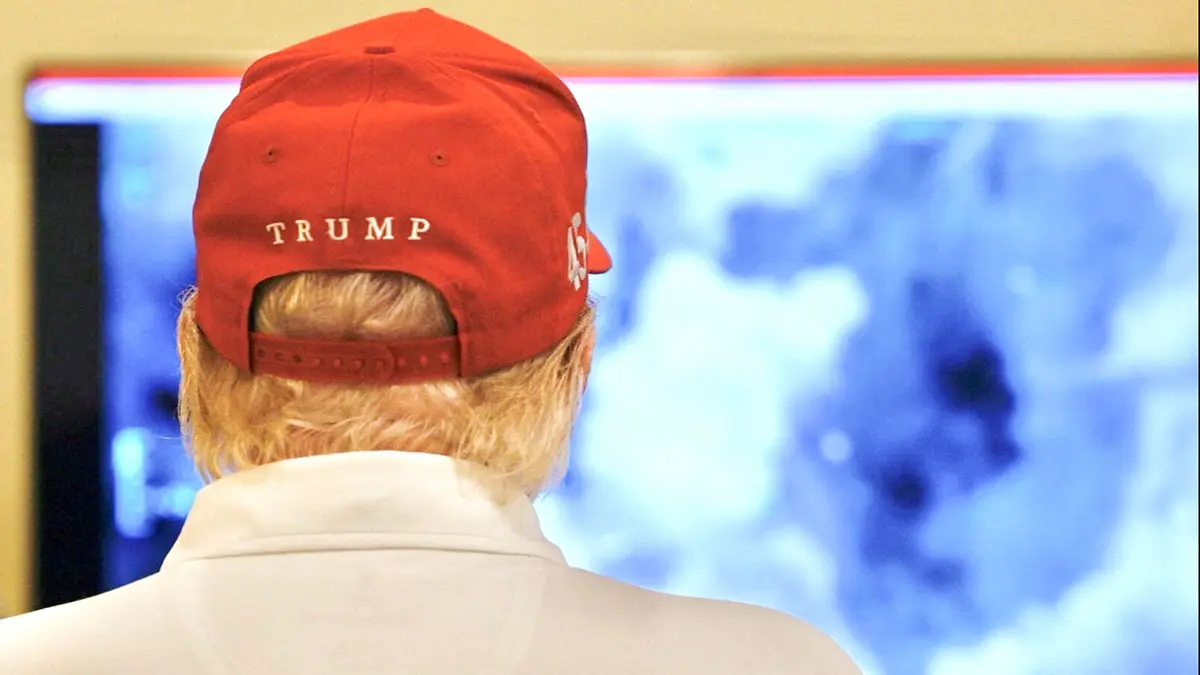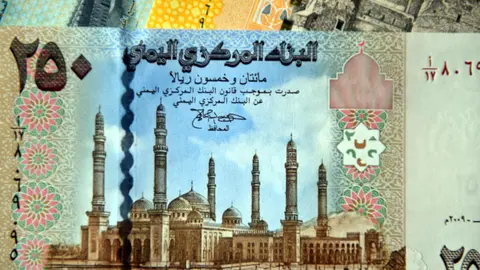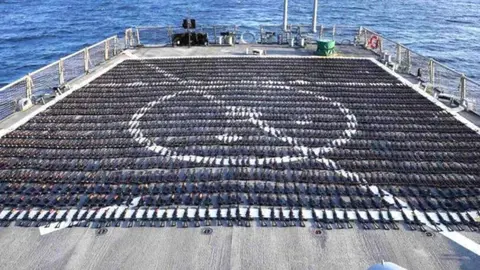The Trump-Houthi clash of stubborn minds

Abdulmalik al-Houthi is someone who hides behind a veil of mystery and seclusion and thrives on the religious fervour of his followers and Donald Trump seems willing to go to any length to achieve his goals on the international scene.
Perhaps Abdulmalik al-Houthi realises today that the enemy is of his own ilk. And this could be his worst nightmare.
Much like him, US President Donald Trump is stubborn and not the type to care about consequences. There is however a big difference between the two, both in terms of personality and the countries they lead. Trump, despite all the labels some try to pin on him, did not become a billionaire while being ignorant or idiotic. He is most certainly a person who is difficult to deal with. He is admittedly unconventional in his way of doing business or as the politician who leads the most powerful nation on earth. Al-Houthi, on the other hand, is someone who hides behind a veil of mystery and seclusion and thrives on the religious fervour of his followers as he tries to suggest that “under the dome is an imam.”
Both Trump and Al-Houthi resemble each other in being stubborn. But this does not mean they alike in everything else. Trump stands at the head of the most important financial, economic, military and politically-influential system in history. Unlike American presidents who have squandered much of America’s power by worrying about domestic political calculations and diplomatic considerations, Trump seems willing to go to any length to achieve his goals on the international scene.
Only weeks since he assumed power, Trump is not discounted by anyone, anymore, whether domestically or internationally, when it comes to anything that is of concern to him. In front of the cameras, he has humiliated Ukrainian President Volodymyr Zelensky. One can only guess how many similar scenes unfolded without being recorded by cameras, and how in the same vein many phone calls were held, many verbal messages conveyed and many emails sent out.
On the opposite side of the showdown, sits Abdulmalik al-Houthi. It is difficult to fathom all the Houthi leader’s calculations as he continues to fuel Yemen’s endless crises. As if the crises at home were not enough to keep him busy, he has “imported” crisis projects from outside his country’s borders, the latest being his arbitrary incursion into the Gaza conflict. Al-Houthi has begun to outbid the Palestinians, who have now realised the extent of their strategic miscalculation when they launched the “Al-Aqsa Flood”. The Palestinians did not in fact want to hear from anyone that the war might erupt again. In the meanwhile, the Houthis plan to harass maritime shippers once again by re-igniting the Red Sea war front, which has already harmed Egypt, the gateway through which aid enters Gaza.
Much has changed during the past few weeks. One president left the White House and another come in. The new US president, known for his stubbornness, wasted no time showing his true colours. Once Abdulmalik al-Houthi made his threats, American jets took off from aircraft carriers and missiles were launched from accompanying warships, in a ferocious assault which the Houthis never experienced during former US President Joe Biden’s term in office.
The ferocity of the attack should be measured not by the sound of the explosions, but by the scope of the destruction they caused, some of which reached areas frequented by Abdulmalik al-Houthi himself. US forces say they have confirmation that some of the launched bombs and missiles targeted senior Houthi political leaders and field commanders.
It is difficult to say if a scenario similar to that faced by Hezbollah in Lebanon is now unfolding in Yemen, but an intelligent person should take a hint. The United States has probably been drawing up this script for some time, in coordination with the Israelis or without them. Washington does not lack the money, equipment and know-how to turn dreams into reality like never before.
When Hassan Nasrallah failed to grasp the Israelis’ message, another well-known and famously stubborn figure, Israeli Prime Minister Binyamin Netanyahu, took escalation to another level, by launching a complex attack which killed anyone who politically, morally or militarily mattered to Hezbollah. The rest is history as they say and Syrian President Bashar al-Assad was collateral damage.
There is no doubt that many in Yemen, and in the Gulf in general, hope that Abdulmalik al-Houthi does not grasp the message. By all accounts, the Ansar Allah leader, who overestimates his capabilities, has come to believe that he actually manufactures missiles and drones and is able to challenge and intimidate superpowers.
It is clear to all, however, that he is merely the mouthpiece of Iran’s disruptive designs and whatever the Revolutionary Guards want him to convey to Washington. As shown by their strange silence since Nasrallah was killed, the Iranians only care about staying out of harm’s way. The Israelis understand the nature of Iranians’ messages, which is why they do not exaggerate their significance nor dwell too long on them. To penetrate all Iranian air defence systems, after the attack waged by Tehran in “retaliation” for the assassination of Nasrallah, Israel launched a single missile at Iran without an explosive warhead. The missile managed to penetrate and destroy Iran’s defences without detonating. Tehran appreciates strikes that do not cause the type of explosions that would force the Revolutionary Guards to attempt a response, while they stands hapless and unable to respond.
Today, Trump is not beating around the bush. The Revolutionary Guards are trying to bide their time, or so they mistakenly believe, in order to achieve some unclear goal. What we know is that the United States wields sufficient weapons and military tactics to inflict a devastating defeat on the Houthis.
Unfortunately, it is a defeat for which the already-destitute people of Yemen will the pay the price. Houthi posturing will not resolve the crisis, and it is inconceivable that the Palestinians would be so naive as to expect a Houthi victory over the Americans, unless the so-called victory is of the same type “achieved” by Operation “Al Aqsa Flood”. There could be a ballistic missile or drone strike against a target in Israel or Egypt, allowing the Houthis, and Iran with them, to claim that this is a sign of the “looming victory”. The scenes of devastation in Gaza have made people think twice before making such claims. If they do so, this is merely a case of rhetorical noise which will quickly dissipate amidst the heavy flow of similar statements. What will remain is the trail of tragedies left behind by the Israelis in Gaza, in southern Lebanon, and in the southern suburbs of Beirut. Those who are drumming up the fictitious accounts of victory must be held accountable for the tragedies they have caused as the Iranians try to sell illusions of triumph in Gaza, Lebanon, the West Bank and, more recently in Yemen.
There remain reasons today for growing anxiety. There is an American president who is willing to go to the furthest extent possible in a face-off against a Yemeni leader who thrives on myths as a means of achieving his political goals while he claims he can challenge and beat American power. A stubborn leader like Trump might find merriment watching videos of Houthi fighters raising banners bearing their “cri de guerre” which includes, among other things, “Death to America” as this might seem like a joke. But as soon as the fighters or their mentor attempt to turn the “cri de guerre” from a joke into some hostile military action, by borrowing a ballistic missile or a drone from Iran, the US president will definitely respond. And his harsh response will be at the expense of the poor Yemenis, who have been subjected to brain-washing and whose simple faith has been transformed into an ideological credo. They do not know how to emerge from a large-scale war planned and orchestrated by the Revolutionary Guards to be performed upon the Sana’a stage. This is the type of dangerous, deadly and naive stubbornness which allows the fence-sitting Supreme Leader Ali Khamenei to watch from Tehran as yet another major ally of his crumbles, the infrastructure of another country is destroyed, and innocents are killed for no reason.
This list is now growing in a way that Iran’s allies did not anticipate. As a result, they have lost what they believed would be for-ever leaders, from Yahya Sinwar to Ismail Haniyeh, to Hassan Nasrallah and then Hashem Safieddine, not to mention the dozens of second-tier leaders of Hamas and Hezbollah. The Houthis have begun to experience the bitter taste of their leaders being killed, while Khamenei sits and watches and probably jokes about “Death to America,” as he knows his team is negotiating or will soon start to do so with the US.
Trump says: “We can both play the game of stubbornness. But you have to know how far this game can go.”
It remains to be seen how this is a game of stubbornness, a conflict of capabilities or a shouting match between two sides, one screaming “Death to America” and the other yelling, “Death to the Houthis”. The latter cry is the one which Trump is muttering today.
Haitham El Zobaidi is the Executive Editor of Al Arab Publishing House.



